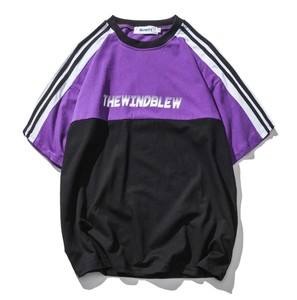The correct clothing production process includes the following basic steps:
1. Design and sample production: First, the designer bases his work on market demand and fashion trends. Carry out clothing design and produce clothing samples. Patterns can be created by hand drawing, 3D modeling or using apparel CAD software.
2. Fabric procurement: According to the fabric requirements provided by the designer, the purchasing department is responsible for contacting suppliers and selecting appropriate fabrics. During the procurement process, it is necessary to ensure that the fabric quality, color, texture, etc. meet the design requirements.
3. Pattern making and sample production: Pattern making is the conversion of clothing designs into templates of multiple sizes. Use clothing CAD software or traditional manual cutting methods to make sample garments according to the design of the model. Sample garments need to be tried on and modified to ensure they fit the body’s curves and are comfortable.
4. Quantity confirmation and order arrangement: Based on market demand and sales forecast, determine the quantity of clothing for each size and formulate production orders. The order includes information such as fabric requirements, size ratio, delivery date, etc. This information will be used to schedule production processes and plan capacity.
5. Production cutting: According to the pattern making, the fabric is cut to the required size and quantity. When cutting, you need to pay attention to the direction and texture of the fabric to ensure that the cut pieces can be perfectly spliced into clothing.
6. Sewing and processing: Send the cut pieces of cloth to the workshop for sewing. The sewing process includes various details and techniques, such as the selection of sewing threads, the setting of stitches, the treatment of collars and collars, etc. At the same time, depending on the design requirements, buttons, zippers, embroidery and other decorations may need to be added.
7. Quality inspection: During the production process, quality inspection is very important. Inspectors will check the quality of work in each link, including cutting, sewing, details and decoration, etc. to ensure that the quality of the garments meets standards and design requirements.
8. Washing and ironing: After sewing, wash and iron. Washing removes stains and odors from processing the fabric, while ironing is used to restore the smoothness and shape of the garment.
9. Packaging and Delivery: The last step is to pack the clothes and prepare them for delivery. The packaging method needs to be determined according to the sales and distribution channel, such as plastic bags, cartons or hangings. Upon delivery, make sure the garment is intact and quantity is confirmed.
The above is a basic clothing production process. Different companies and products may have some subtle differences. In order to ensure clothing quality and delivery time, each step needs to be strictly controlled and managed, while paying attention to the coordination and communication between all links.






